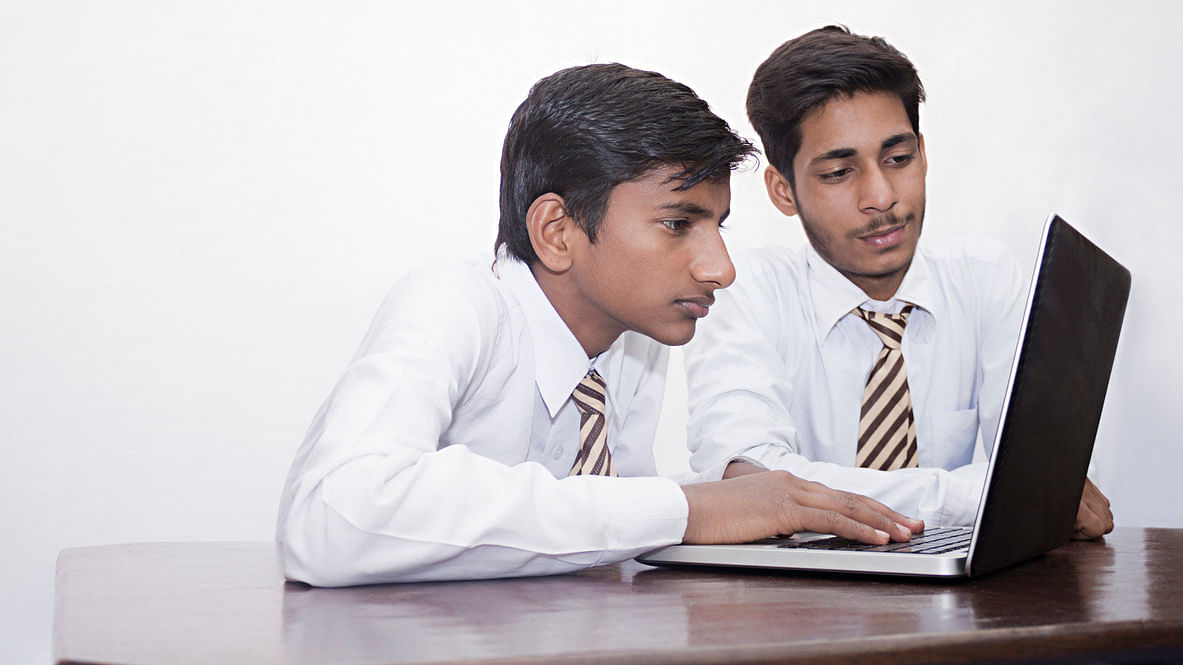
The board exams for classes X and XII will be held across the country in April-May. No sooner than board exams announced, students start feeling the pressure from their schools, teachers, parents and even neighbours, either directly or indirectly. This added pressure does not help the cause since students already grapple with anxiety from within, which stems from their aspirations and desire to perform well.
For the past two years, the usual course of students' lives has been disrupted. As students get accustomed to the new normal of online education, they find it challenging to switch back to the offline on-campus mode. A section of students from schools that continued with online classes did not seem eager to take offline exams. Some students approached the judiciary to protest offline exams.
The abruptness of online/offline education
Internet and mobile technology have proven to be a big saviour in recent times for academic pursuits. Also, mobile devices and applications offered the only means of communication for many weeks to students to connect with their friends and the world around them. Mobile devices and the internet became the go-to option for entertainment and leisure activities for a large proportion of students. Now, they have to appear in offline exams.
The 'fear of exams' is not a new phenomenon. It is a phantom that manifests itself every year a couple of months before the board exams. However, given the current situation, both the context and the focus of this fear have changed. While students' pursuit of performing well and the pressure from the world around them is still the same, the abrupt shift to the offline mode is an added challenge for students.
Students had little, if any, opportunities to take offline exams in the past two years. In this scenario, it is understandable that appearing directly for the board examinations offline can lead to apprehensions among students. Moreover, the ongoing uncertainty around the Covid-19 pandemic and the fear of possible exposure to the virus adds to their concerns.
Indeed, the pandemic and internet-video games impact educational outcomes and social behaviour. Today, urban teenage children prefer the internet over social interactions and explore happiness in a virtual world. The many hours of the day spent on online games result in mental stress, anger and depression. It gets difficult to concentrate, read something and follow a routine.
Increasing mental stress and fear of failure
Thousands of youth in India fall prey to mental stress, depression and anxiety under the pressure of exams and the fear of failure. The National Crime Records Bureau's data shows that more students ended their lives in 2020 than in 2019. Fear of examination, risk of failure, and worry about losing family-social prestige also contributed to depression.
It is also true that the world of today's children cannot be imagined without the internet. Internet is increasingly becoming a necessity in their daily routine for educational, communication and entertainment purposes. Major IT companies are heavily investing in the internet and online games. Today the internet game market is worth more than $170 billion annually, a more significant business than the movies and music industries and will continue to grow.
Given the future of children's education, policymaking for online gaming is essential. While gaming is a leisure activity for many, and most can engage in gaming without experiencing any adverse consequences, at least a proportion of those who engage in it cannot regulate their gaming. These students lose control over their gaming, tend to get preoccupied with gaming to the extent detrimental to their academic, interpersonal and leisure time pursuits, and continue to engage in gaming despite experiencing adverse consequences.
Online gaming as a behavioural disorder
The World Health Organization (WHO) has now included gaming disorder as a diagnosable medical disorder in the International Classification of Diseases. The All India Institute of Medical Sciences (AIIMS), New Delhi, has set up the Behavioral Addictions Clinic (BAC) to cater to those experiencing problematic gaming patterns, social media and internet use.
Most visitors to the clinic are children, adolescents, and young adults who are gaming for many hours during the day and cannot control their gaming behaviour. Their gaming has detrimental effects on their studies, physical and mental health, interpersonal relations, mindsets, and achievements. Due to excessive and prolonged immersion in the gaming world, many of these students also find the in-person interactions with their peers challenging.
What parents need to do
The exam is not a case of do or die, so parents should keep patience and be engaging with the children as a positive force reducing their stress. Investing additional time into studies at this stage can help ease the pressure. Better and judicious scheduling of daily routine by curtailing non-educational screen time can be an effective strategy. By reducing their use of mobile devices and the internet, students can minimise distractions and concentrate better on their exam preparation.
Ensuring proper sleep, a regular daily routine, healthy food and interaction with friends and family can make the ecosystem jovial. Students must be encouraged to look at the exams with excitement, not anxiety hampering mental health. Being mentally resilient is essential to face the challenges than having fear for an exam in the long path of life's journey.
Check out the latest DH videos here: